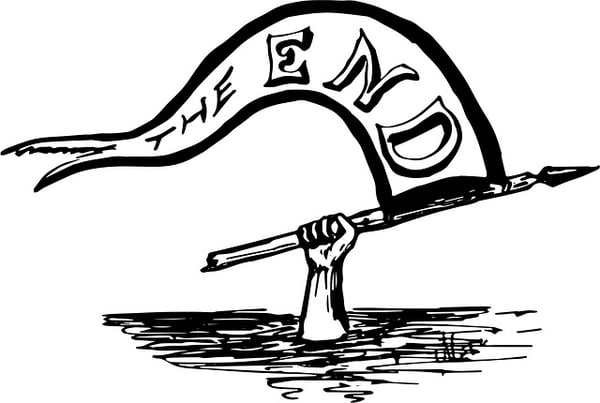When was the last time you conducted an actual project close? I bet I can predict your answer based on your project management expertise. Does one of these hit the nail on the head?
- A Project Management Professional* says, “All the time, of course!”
- The project leader with good intentions says, “Sometimes we’re just too busy, but next time we’ll do a project close, I swear.”
- A staff member with little project leadership experience says, “A project what?”

Project teams are often good at starting a project, but by the time the technology launches, everyone is ready to be done. Not so fast.
Why your organization needs to conduct a project close
Formal project close meetings present an opportunity for your team to reflect upon the project, share what went well, and flag what needs to improve next time.
Within two to four weeks of your project launch, plan to get the team back together to do a proper project close. That'll give them enough time to sit back and think about the project in its entirety: how it made an impact on their job and department, as well as how it contributed to your organization’s success. This reflection will keep them from getting caught up in the weeds and remembering just the challenges.
What you learn during a project close is gold if you use it to improve future projects. If you don’t, project teams are doomed to repeat the same mistakes and experience the same difficulties.
Get to know the basic elements of a project close
Recently, I was part of an effective project close process for a multi-faceted project: the organization launched a new content management system (CMS), upgraded their association management system (AMS), and added six other applications, including a community platform. Our series of project close activities included:
- Core team project close meeting with a project retrospective a.k.a. “lessons learned” exercise
- Celebration and recognition—don’t ever skip this!
- Stakeholder team project retrospective
- Project review with vendors
- Transfer knowledge and documentation from vendor’s implementation team to support team
- Plan for Phase 2
Identify your project close meeting agenda
Schedule at least 90 minutes for the core team project close meeting and plan to cover these items:
- Review the initial project goals. What did your team set out to do? Did you meet those goals?
- How did the project impact your organization? Evaluate the project based on what your organization needed, not on what the old system used to do. Consider any unexpected impacts—those not directly tied to project outcomes/success. For example, did you uncover new talents or identify other issues?
- Outline key wins.
- Identify key misses.
- Ask each team member what was effective and what needed work. Then really listen to what they have to say.
- Note any areas that require further, in-depth discussion.
- Determine if you really are “done.” How did the team originally define “done” for this phase of the project? Does everyone now agree that this phase is, in fact, done?
- Identify next steps. For example, will you meet with vendors to conduct a project close, transition to support, plan Phase 2, or just take a nap?
Eavesdrop on a project close meeting
To give you a better idea about the topics discussed during a project close, here are some of the hits and misses identified by actual project team members. Keep these lessons in mind when you plan your next project.

First, project hits:
- Dedicated work space for the project—our “war room.”
- Slack channel for communication with staff and vendors—better than email!
- Use of different tools at each stage of the project, for example, Trello for tasks with the web vendor and Microsoft Teams for document organization.
- Team’s flexibility in making adjustments to improve project.
- Mock go-live was helpful for identifying upgrade issues early in the process.
- Staff and member expectations managed well.
- High level of trust, cooperation, support, and confidentiality within the team. Positive attitude. Full buy-in on the project vision.
Now, the project challenges or misses:
- Keep departments focused on their task list—out of sight, out of mind sometimes.
- Next time, consider internal network environments earlier in the project.
- Get detailed integration checklists from vendors.
- Step back to review and test functionality before moving forward.
- Having fixed timelines made vendor management more difficult and led to compromises.
Now that you’ve learned these valuable nuggets from a real project close, put the information to use. Review your project processes and documents to incorporate appropriate changes based on what you’ve learned. Follow up on challenges to determine if some items require immediate intervention or resolution. When you kick off your next project, refer to the summaries of your most recent project closes for a reminder of what to continue and what to avoid.
*The PMP is issued by the Project Management Institute.
